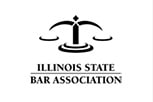Drug warnings and liability: who’s responsible?

According to the Mayo Clinic, nearly 70 percent of all Americans take prescription medications and more than 50 percent take two or more. Prescription drug labels are intended to provide guidelines that allow for the safe and effective use of a product. However, Consumer Reports notes that more than 500,000 Americans misinterpret these labels each year. A Chicago personal injury lawyer could tell you that many Illinois residents have been harmed by such misinterpretations.
Although patients frequently refer to their prescription’s label for instructions, the Food and Drug Administration states that the primary purpose of the labeling is to give medical professionals, rather than patients, the proper instructions. When someone is injured because of a medication error or a misinterpretation of a drug warning, the patient often chooses to file a lawsuit against the party he or she considers responsible: the drug’s manufacturer.
Why prescription drug instructions often prove difficult to interpret
A report from the Institute of Medicine, titled “Preventing Medication Errors,” listed poor or insufficient labeling among the primary causes of medication errors in the U.S. There are several reasons labels are commonly misinterpreted. Consumer Reports attributes part of the problem to the fact that there is no nationwide standard for prescription drug labels, unlike those that exist for over-the-counter medications.
A 2007 study published in the journal Patient Education and Counseling indicated a widespread occurrence of medication errors, as a Chicago personal injury lawyer is well aware. Among the notable findings was the fact that one-third of patients misunderstood that the phrase “two tablets by mouth daily” meant to take four pills within one 24-hour timeframe. Without clear, uniform regulations, such errors will likely continue to affect hundreds of thousands of Americans annually.
Minimizing the odds of an adverse reaction or medication error
Many patients who see adverse side effects from medications choose to file a lawsuit against the drug manufacturer. While this action may help the patient gain compensation for injuries and medical bills, a Chicago personal injury lawyer knows that some medication errors are largely avoidable. Speaking with a pharmacist about possible adverse reactions or the risks of taking one medication in combination with others is essential. Patients are also advised to thoroughly review any information sheets that accompany a new medication.
When medication errors related to drug labels occur, it’s the manufacturer’s job to make it right. Taking the time to carefully review and read up on any prescription medications before taking them may help patients avoid a potentially expensive and lengthy legal battle.




